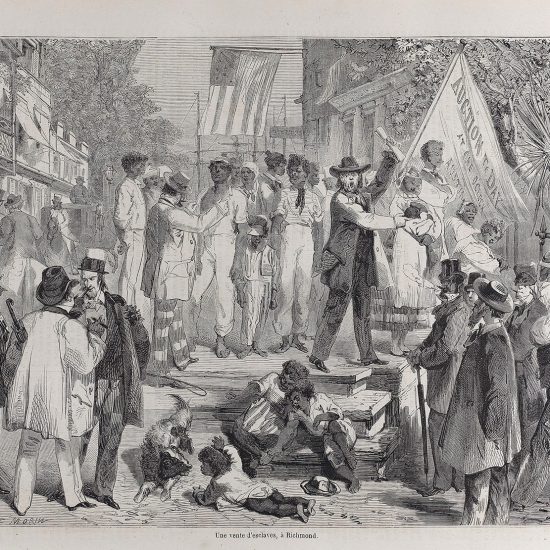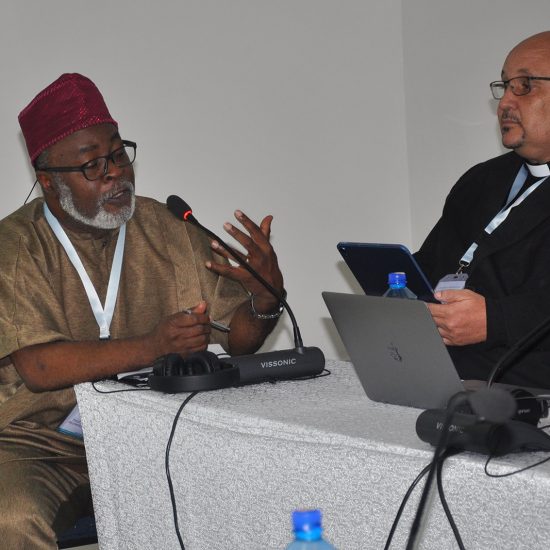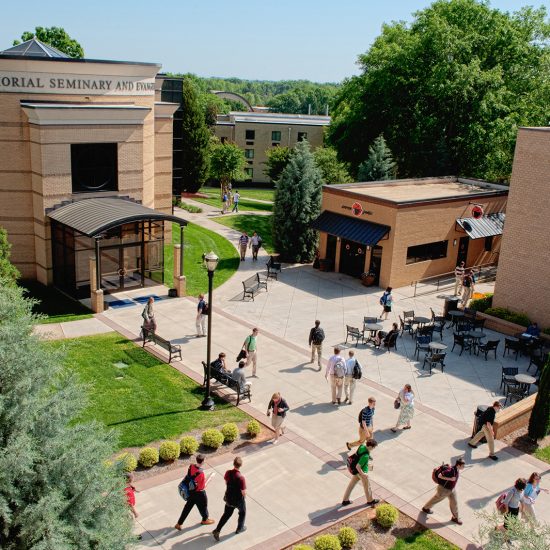When Zacchaeus met Jesus and recognized his sins, he did more than say a little prayer. Zacchaeus also announced he would give half his possessions as charity to the poor and that he would repair the damage by repaying fourfold those he cheated. It’s an important moment. And a critical part of that story is the financial payments. But today it seems we’re often unwilling to let a Zacchaeus walk such a path of redemption.

Brian Kaylor
Consider, for instance, ‘Papa’ John. Not the pizza company, but the man who started it, John Schnatter. Last year, Schnatter resigned as chairman of the board for his pizza company — and from the board of trustees of the University of Louisville — after reports he used the ‘n’-word during a conference call with a marketing agency. He had stepped down as Papa John CEO the previous year amid controversy about comments he made criticizing black NFL players protesting at games.
After more than a year of largely staying out of the spotlight, Schnatter appeared in September at Simmons College of Kentucky, a historically black Baptist school in Louisville — the same city where Papa John’s corporate headquarters are and a city just across the river from where Schnatter grew up in Jeffersonville, Indiana. In the Sept. 4 press conference, Schnatter announced a $1 million to the school. The next week, he appeared at the 2019 annual convention of the National Baptist Convention of America, the historically black denomination with which Simmons is affiliated. There he mentioned that part of the gift would help the NBCA’s retreat center in Kentucky.
But controversy shows up with Schnatter faster than a pizza delivery car. One Louisville pastor attacked Schnatter’s “gall” of “trying to pay off the black community with 30 pieces of silver.” And that minister criticized Simmons for accepting the gift. But the chairman of the board of trustees at Simmons pushed back, saying, “Actions are key.”

John Schnatter, founder of Papa John’s Pizza (center), with (from left) Ray Belton, president of Southern University in Baton Rouge, La.; Samuel Tolbert, president of the National Baptist Convention of America; and Kevin Cosby, president of Simmons College of Kentucky in Louisville, Ky., after Schnatter announced a $1 million gift to Simmons on Sept. 4. (Photo from Tolbert’s Facebook page)
And the board chairman’s right. It’s easy to be cynical. Personally, it’s kind of my default response. Do I believe Schnatter’s changed? I want to say, “Probably not.” But as I read the story of Zacchaeus, I temper that response with, “Well, time will tell.” Perhaps this is just a public relations move designed to fix his image. If so, he’ll probably slip up again and show his true self. Or, perhaps he’ll move on and not look back again at the black community in his town. If that’s the case, then leaders at Simmons and NBCA will have an extra responsibility to criticize Schnatter for being a whitewashed tomb (Matthew 23:27-28).
But if we take the argument of those who say Simmons and NBCA shouldn’t have accepted the money, then it leaves no room for redemption. That response leaves no chance for salvation to come to a Zacchaeus.
What if no one believed Zacchaeus had changed after that dinner with Jesus? What if they all refused to accept his money because it was tainted? What, then, for Zacchaeus?
Perhaps he would have just given up and decided to keep it after all. Perhaps he would have decided this Jesus thing didn’t actually work. But for salvation to come to Zacchaeus, he needs to make amends.
The same is true for Schnatter. He has hurt the black community. He needs to make amends. And where better to start than with the most significant black institution in his community? Because like Zacchaeus, Schnatter needs to give his money to Simmons and NBCA more than Simmons and NBCA need his money (and they really do need it).
We need to help Zacchaeuses today as they seek redemption. We need to give them the grace to grow, the chance to repent and repair. If it’s a fake act just to get good publicity, then we’ll have to call them out and hold them accountable. But let’s create space for grace, let’s provide room for redemption. As NBCA President Samuel Tolbert said while thanking Schnatter: “This is truly how you do better.”
Brian Kaylor is editor and president of Word&Way.






